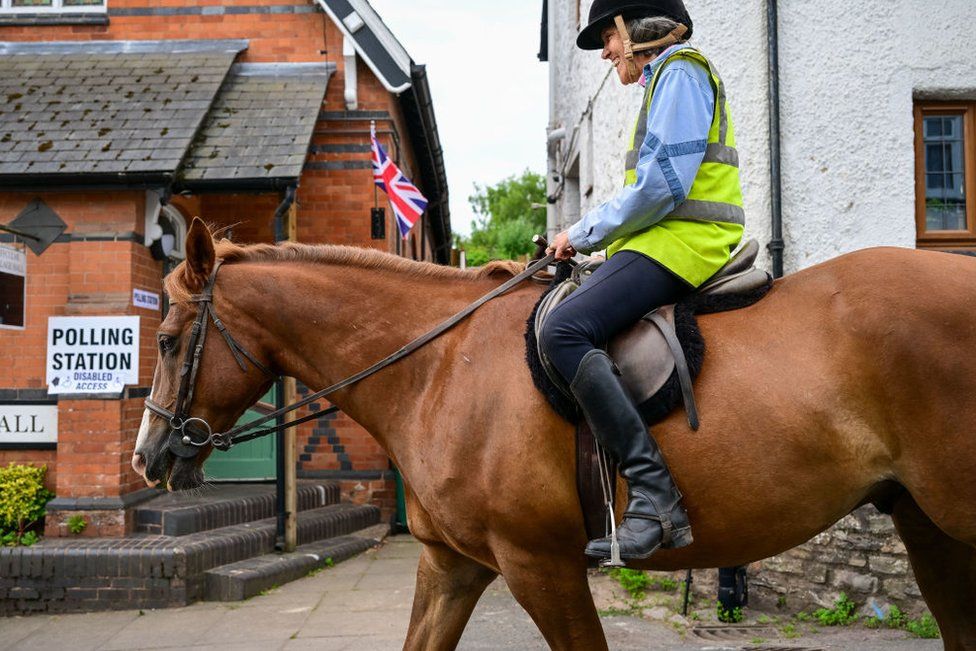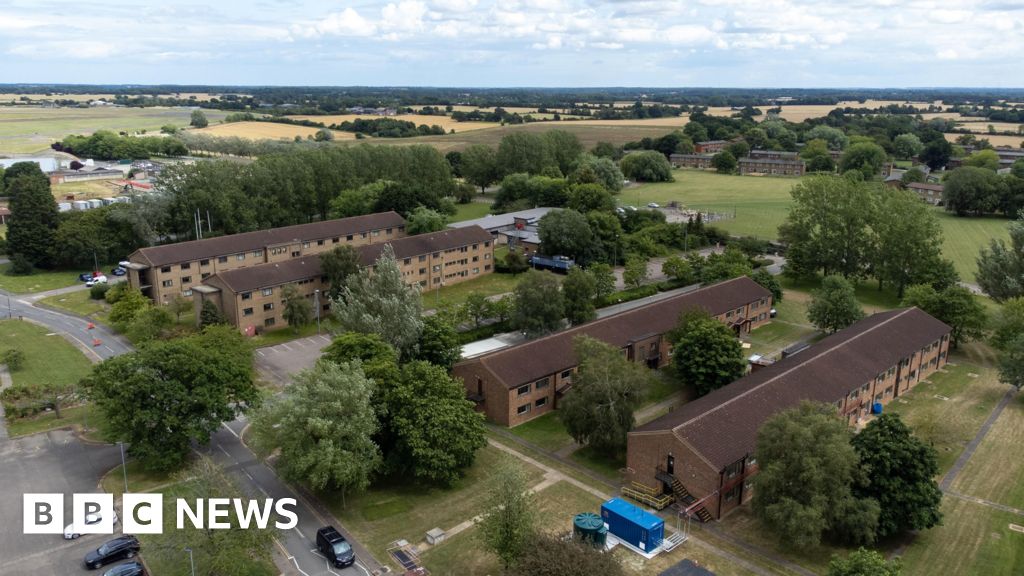ARTICLE AD BOX
 Image source, Getty Images
Image source, Getty Images
A woman passes a polling station on horseback in Uffculme, Devon
There has been a resounding double defeat for the Conservatives after the Lib Dems took the south-western rural stronghold of Tiverton and Honiton and Labour made a decisive return to power in the northern seat of Wakefield.
Our South West political editor Martyn Oates and Yorkshire political editor James Vincent have been following the candidates and speaking to voters in the two very different communities over the past few weeks. This is what they have learned.
Martyn Oates in Tiverton and Honiton
1/ Low wages and high house prices squeezing voters
On the face of it, the South West is a typical rural Conservative stronghold - and from the 2015 general election until this by-election electors across the peninsula returned a Conservative MP in all but two constituencies. But Devon and Cornwall also had serious socio-economic problems even before the cost of living crisis hit.
Government funding has singled out Cornwall for special treatment. But research by Devon County Council shows this constituency is one of several areas of Devon where productivity per head is equal to or poorer than Cornwall's - without corresponding government recognition.
Low wages contrast with soaring house prices. Spiralling fuel prices are a particular concern in highly-rural constituencies like this, where a car is often seen as essential to live and work.
Getting the voice of the rural South West heard in Westminster has always been a challenge - and some think that has not become easier with the present government's anxiety to help its new friends in the North.
2/ Farmers on collision course with government
Agriculture shapes the whole landscape of this constituency, from Exmoor to the Blackdown Hills to the Jurassic Coast. And the government has put itself on a collision course with the farming community in at least three key policy areas.
Farmers say they are once again ploughing crops back into the fields because they cannot source enough foreign labour under the government's strict new immigration rules.
Livestock farmers - who predominate here - are also extremely worried about the new trade deals ministers have struck with Australia and New Zealand, fearing they will be undercut by a flood of cheap foreign meat. Even the government's own analysis found the agricultural sector would suffer as a result.
And the ending of the old EU-style farm subsidies is especially feared somewhere like this where the typically small, family farm has relied on them to stay in business.
3/ Prime minister's personality looms large
Boris Johnson's barnstorming celebrity status and his unconventional approach to high office always risked being a double-edged sword, though many saw it as the trump card which won the Conservatives their huge majority in 2019. Two-and-half years into his premiership and with the partygate row and the confidence vote fresh in voter's minds, the PM's personality loomed perhaps unusually large in this by-election.
The candidates for the three big parties all brandished impressive local credentials. But another local - the ex-MP whose resignation triggered this by-election - was arguably the other big political personality here, albeit one with no active involvement. The enduring affection for Neil Parish, a farmer himself and widely credited for working hard for this farming community, is perhaps a reminder that strong local candidates can also help make or break the political weather.
James Vincent in Wakefield
Image source, Getty Images
1/ Fans don't back beleaguered clubs
Many people in Wakefield are Leeds United fans. They will always support Leeds, but might not go to games if the team is not doing very well. That's potentially what happened here with the Conservatives.
People who are natural Conservative voters may have just stayed at home rather than voting. The low turnout did them no favours and just like fans of a beleaguered club they perhaps showed their views by not showing them at all.
For football clubs, the way they get out of that rut is by changing the manager.
2/ Prime minister's no-show may have had an impact
Maybe leader visits do matter in election campaigns. Sir Keir Starmer was in Wakefield a number of times. Boris Johnson was due last week - but went to Ukraine instead. As usual, you can read this both ways. Maybe the Conservatives did not want the PM in front of microphones at difficult times. But it also might have looked like they were not taking the by-election here seriously.
Also, those nearby MPs that backed the PM in the confidence vote, did so in part because he was seen as a vote winner. He helped get some MPs their first-ever job in Westminster. But in Yorkshire today, he's not a vote winner. Will he ever come to Yorkshire as PM again?
3/ Are voters in the North returning to Labour?
Labour can take back "red wall" seats. I mean, no-one here calls it the red wall, but Labour thinks they can grab them back. The Conservatives think this election was called for such a specific reason it proves nothing.
Labour were favourites, but the big question was how big they could win. A narrow victory could potentially have been shrugged off by the Conservatives and seen as Labour voters not taking to Sir Keir. Nearly 5,000 is big enough for Labour to see it as evidence people are coming back to them. But there is a big difference between a by-election and a general election.

 2 years ago
142
2 years ago
142








 English (US) ·
English (US) ·